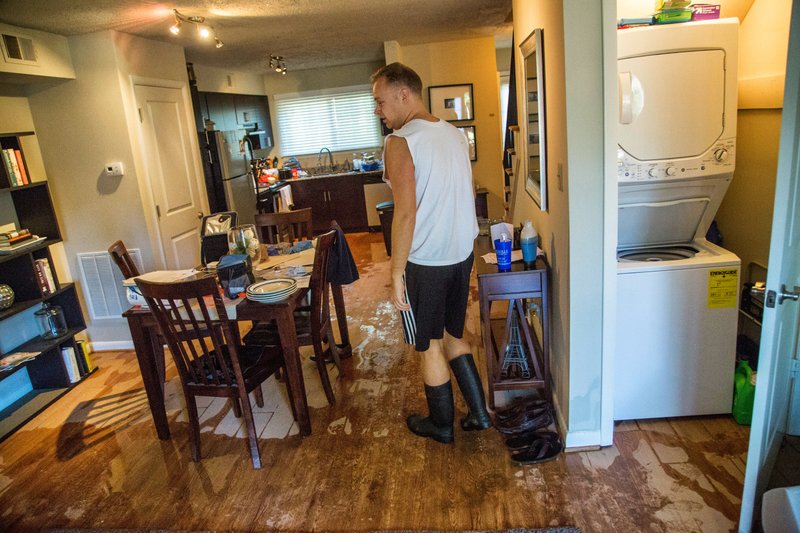FAYETTEVILLE, N.C. — Hurricane Matthew is gone, but the disaster it unleashed will slowly unfold this week as rivers across eastern North Carolina rise to levels unseen since a similar deluge flooded thousands of homes and businesses during Hurricane Floyd in 1999.
Emergency planners are now using models that can pinpoint exactly how high the rivers can get and which buildings will be flooded days in advance. But they can't predict whether dams and levees will bust from the stress of more than a foot of rain in some places. At least one already has.
In Lumberton, a levee broke overnight and crews scrambled to rescue 1,500 people. Most of them were in knee deep water, but there were people on rooftops waiting for boats or helicopters, North Carolina Gov. Pat McCrory said.
Evacuations were ordered in cities along three different rivers. Some rivers were expected to be at record levels Friday — six days after Matthew's rains ended.
State resources are stretched to their limit, McCrory said.
"If you've been told to evacuate, then evacuate. If you don't we have to divert resources to the area to save you," the governor said Monday.
Immediately after Saturday's rains, thousands of people found themselves suddenly trapped in homes and cars during the torrential rains. Rescuers in Coast Guard helicopters plucked some of them from rooftops and used military vehicles to reach others, including a woman who held on to a tree for three hours after her car was overrun by flood waters.
The storm killed more than 500 people in Haiti and at least 21 in the U.S. — nearly half of them in North Carolina. Most were swept away by flood waters.
At least two of the five people reported missing in North Carolina have been found. McCrory and others fear the death toll may rise though, as impatient people drive around road barricades into swiftly moving floodwaters.
Read Tuesday's Arkansas Democrat-Gazette for full details.

